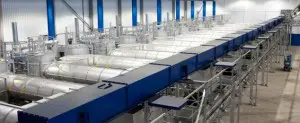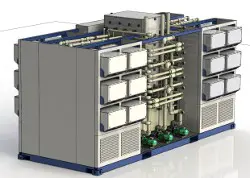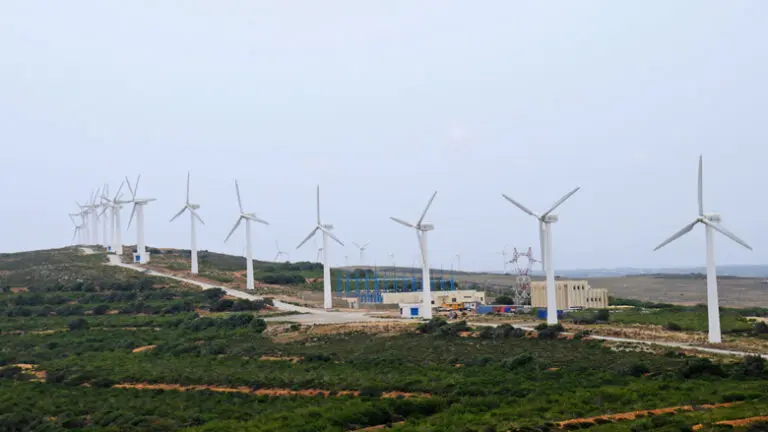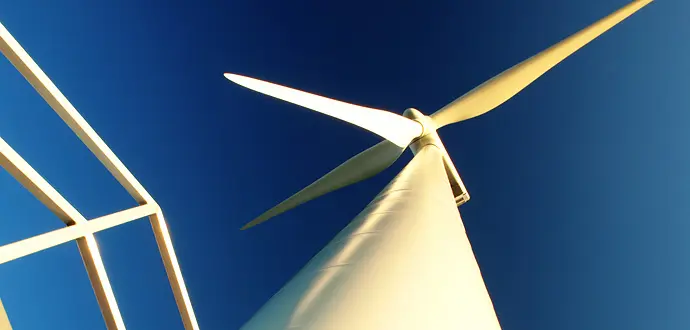Dorset, UK based NEAT Technology Group, a subsidiary of waste treatment and composting services company, New Earth Solutions, has begun producing electricity from Refuse Derived Fuel (RDF) at its first facility to use its patented pyrolysis and gasification Advanced Conversion Technology (ACT) in Avonmouth.
The facility has been developed alongside New Earth’s existing 250,000 tonne per year Mechanical Biological Treatment (MBT) plant which the company said produces RDF from waste which would otherwise have been sent to landfill or exported.
According to NEAT, the facility was designed to be installed in two independent 6.5 MWe phases.
Scott Edmondson, NEAT’s technical director and lead engineer explained that the facility is based on a modular design, and that the company set out to design one tonne per hour modular units.
“In the Avonmouth design there are 16 units as the energy solution has been sized to meet the needs of the RDF production rates of the adjacent MBT,” he said.
According to Edmondson this modular approach means that the company is able to supply solutions that fit local needs rather than the minimum economic tonnages which can associated with larger-scale thermal processes.
“Phase 1 has been commissioned and is operational, Phase 2 is currently being installed and will be generating power in the autumn,” he added.
According to Graham Lockyer, NEAT’s business development director, the company began hot commissioning the plant back in February, and since has processed 10,000 tonnes of prepared RDF with a cumulative total of over 10,000 operational hours across eight modular Phase 1 thermal units.
The energy produced is used to power the MBT facility, with the surplus being exported to the grid.
Home treatment
Until recently, all of the RDF produced at New Earth’s MBT plant was exported to the continent, which the company noted does little for the UK balance of payments or local sustainability initiatives. Now the fuel is being sent via a 30 metre connecting conveyor to the advanced conversion plant.
However, Edmondson explained that everyday black-bag waste is far from being a homogeneous and predictable fuel.
“New Earth’s front end MBT removes metals, plastics and compostable elements before preparing the still biomass-rich balance as a fuel,” he added.
The MBT was built with an underpinning contract from the West of England waste Partnership (WoEP), which the company said has achieved significant carbon savings for the four authorities which make up the partnership.
To back this claim New Earth heighted a recent Jacobs’ report which commissioned by WoEP concluded that each year the MBT avoids over 40,000 tonnes of carbon dioxide equivalent emissions when compared to landfill used previously by WoEP.
Roc on
Under the UK government’s Renewable Obligation Order, which encourages the development of innovative technology to help meet the UK’s renewable energy target, NEAT said that electricity produced by its new facility qualifies for double Renewable Obligation Certificates (ROCs).
According to the company this economic incentive stimulated the R&D drive that led to it developing the plant.
“We see this not only as a breakthrough for NEAT, but for the whole of the advanced thermal waste-to-energy market. The Avonmouth facility proves that pyrolysis and gasification is effective at a commercial scale,” concluded Lockyer.
Source: Waste Management World






